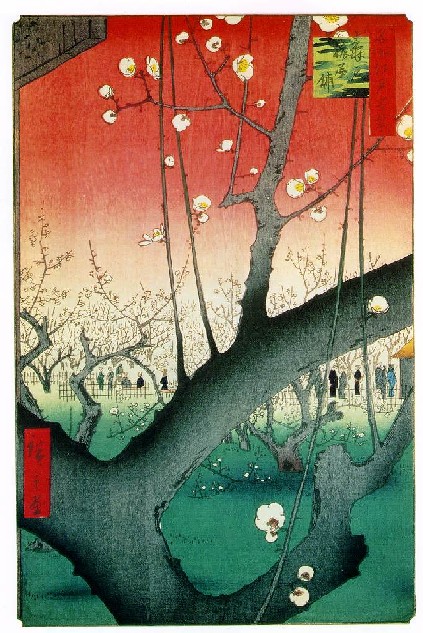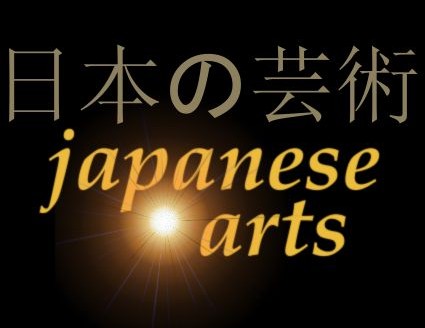| architecture |
| calligraphy |
| ceramics |
| clothing |
| comics |
| gardens |
| lacquerwork |
| literature |
| movies |
| music |
| painting |
| poetry |
| sculpture |
| tea ceremony |
| television |
| theatre |
| weaponry |
| thematic routes |
| timeline |
| the site |

|
Plum Estate, Kameido |
context: painting > prints > artists
Ando Hiroshige, 1797-1858
He was a low-rank samurai with a hereditary position in the fire brigade (which is a very respectable role in a country with towns built of wood and paper), but he was inspired by Hokusai, despite a very different temperament. It's easy to find articles valorising Hokusai's free spirit eccentricity (fair enough), in contrast to the dull bureaucrat Hiroshige (don't be silly). It's true that his work looks relatively conventional when stacked next to that of Hokusai, but we don't call everyone in the world dull by making that comparison, because it is pointless. Maybe it's partly Hiroshige's fault for forcing the contrast, but we don't have to follow his lead.
Hiroshige was a different kind of painter, looking for beauty and poetry in the world, and finding it to an extraordinary degree. His composition was bold and striking and often original, and his sense of tone and colour absolutely magnificent, whether in an almost monochrome image like in the link above, or with the astounding and intense richness shown on this page. What we end up with is as easily lovable an artist as the world has seen - maybe that's why he was so colossally popular. What with being at the end of the great era of Edo prints, being its most popular artist ever, and being hugely productive, almost half of all surviving prints are by Hiroshige!
And you can see most of them here!
